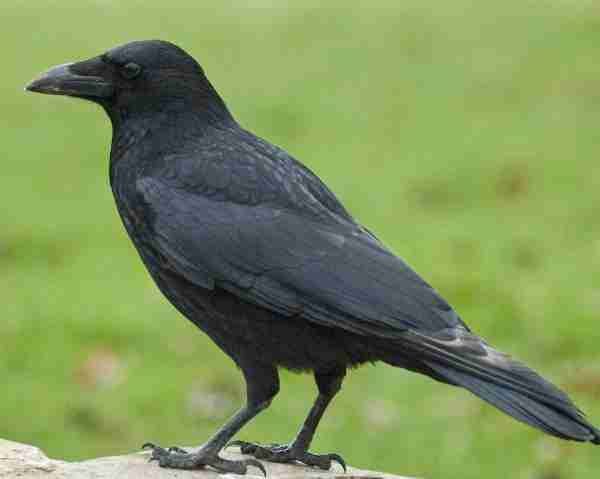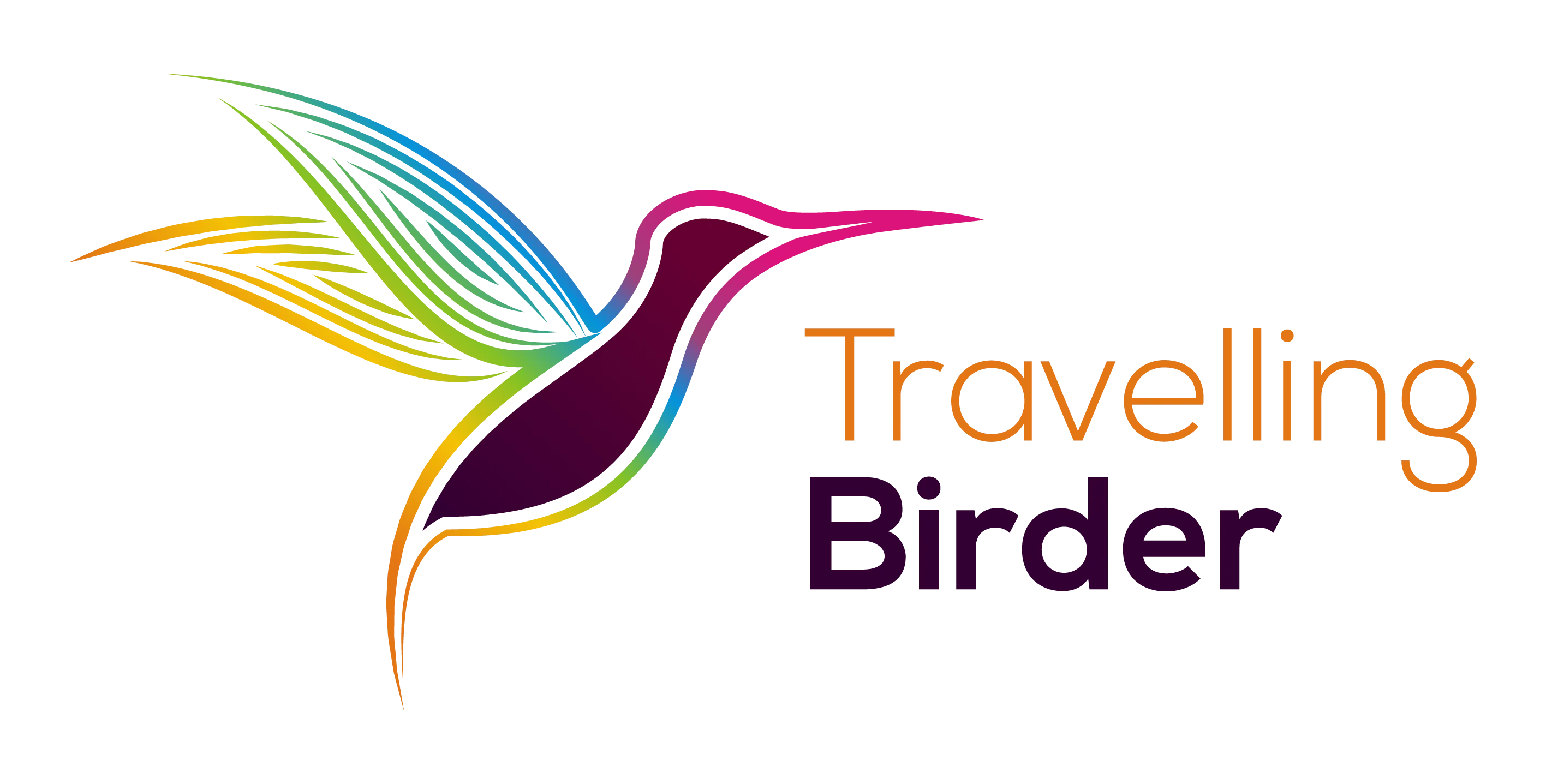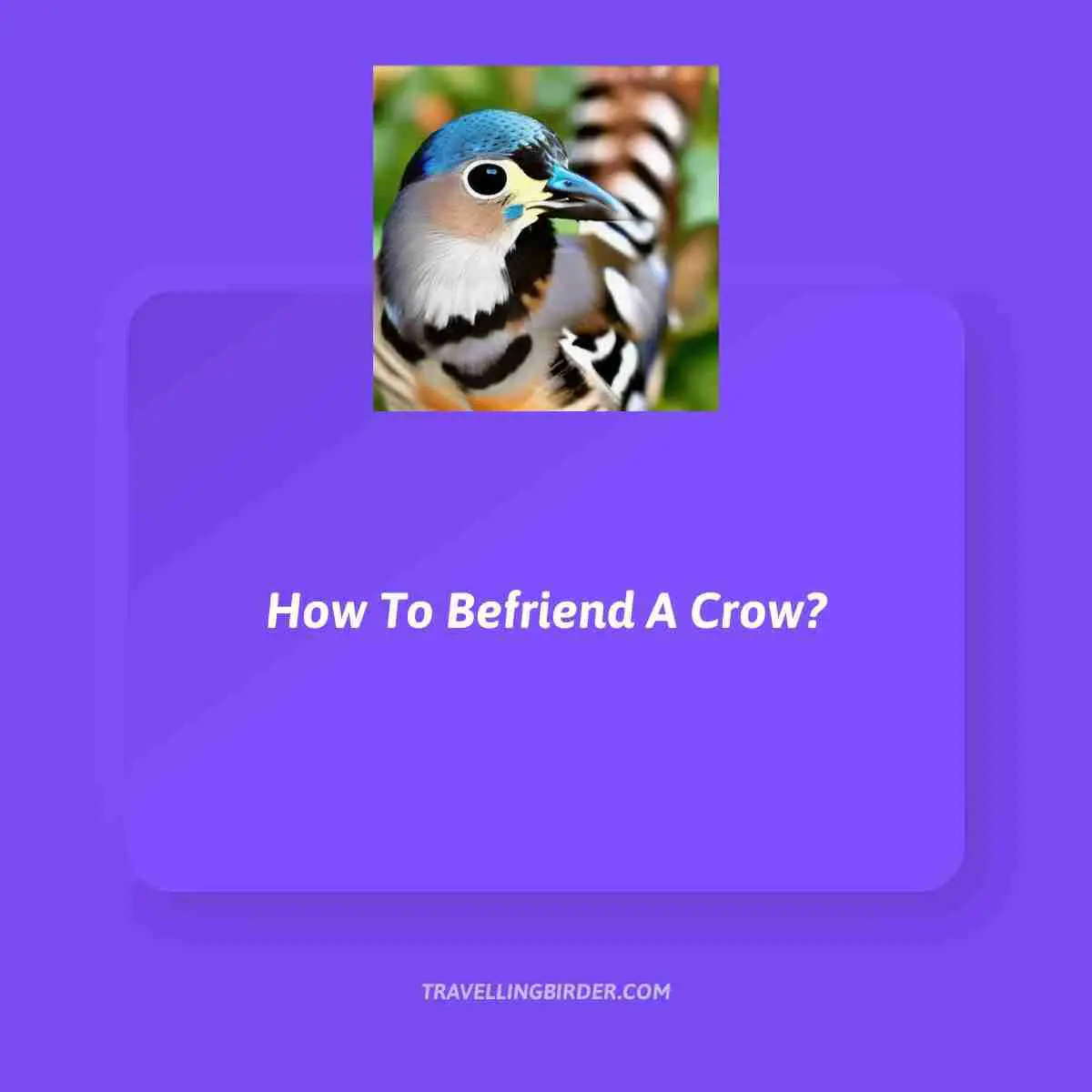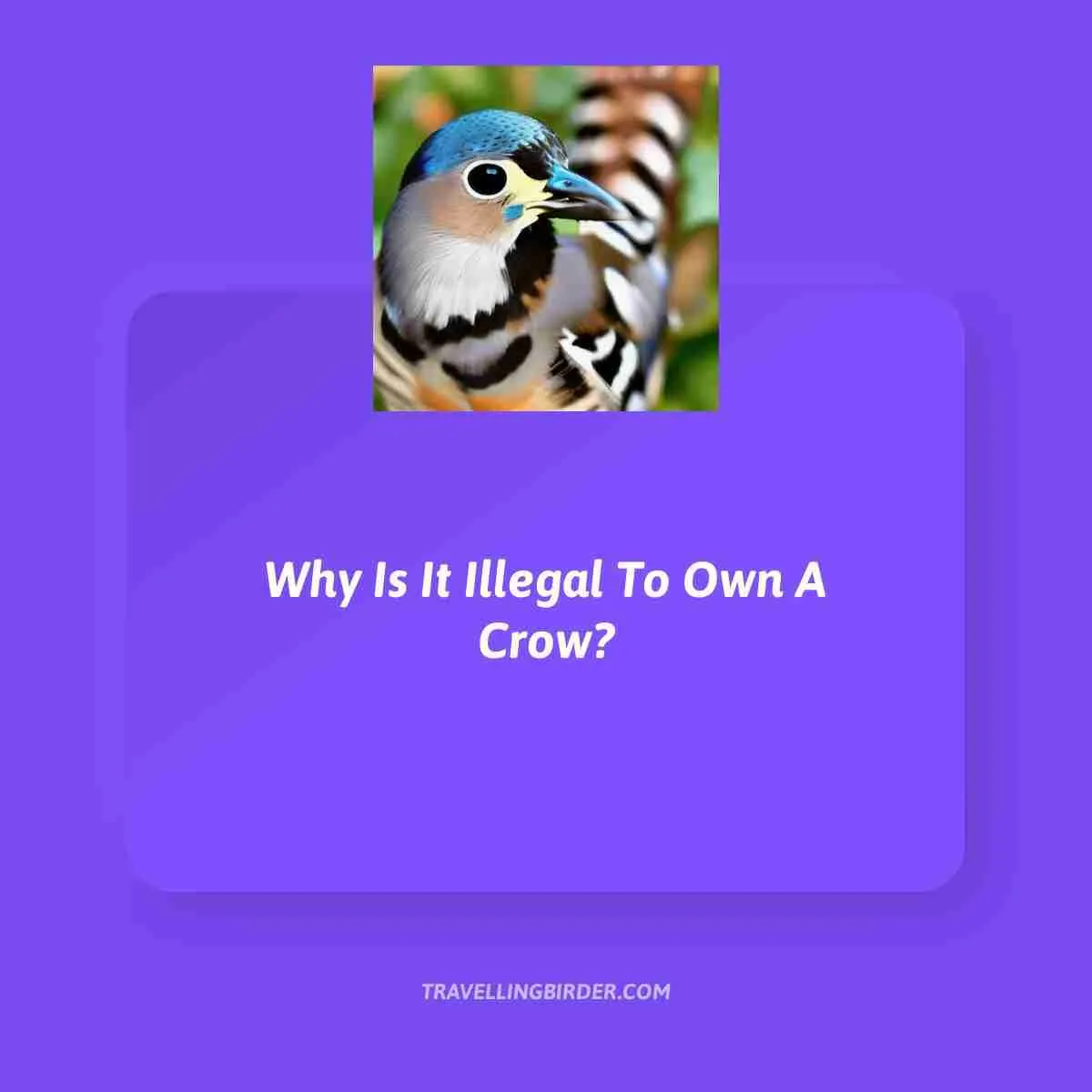As an ornithologist, I am always fascinated by the behavior of birds in nature. One species that has been particularly captivating to me is the crow. Crows are incredibly intelligent and resourceful animals, capable of forming strong social bonds with each other and even humans if given the chance! In this article, I will cover some essential tips for those looking to befriend a crow. With patience and dedication, you too may find yourself enjoying the companionship of one of these amazing creatures.
Crows are quite common across North America and can be seen almost anywhere during most months out of the year. As such, they make perfect candidates for potential friends or companions! However, it’s important to understand that crows have their own unique behaviors which must be respected and followed in order to successfully gain their trust. The key to friendship with a crow lies in understanding how best to interact with them and providing them with comfortable conditions which encourage positive interactions between human and bird alike.

Finally, before diving into specifics on how to befriend a crow, it’s crucial we take note of one very important thing: remember that all crows are individuals and should be treated as such! Every bird has its own personality quirks which need special consideration when beginning your journey towards establishing a bond with your new feathered friend. Now let’s move onto discussing exactly what methods work best when trying to build up rapport with a crow!
Understanding Crows
Crows are often seen as solitary creatures, but this is far from the truth. In reality, crows form complex societies within their flocks where they communicate and cooperate with each other in intricate ways. Crows can be likened to a vast ocean of knowledge – dark and mysterious yet inviting exploration into its depths. They are intelligent birds that use tools, remember faces, and interact with humans how we interact with one another.
Though crows have been known for centuries for their intelligence and resourcefulness, establishing trust between them and us can seem like an insurmountable task. To do so requires patience, dedication, and respect for their behavior. Understanding what motivates crows will help you build relationships based on mutual understanding and appreciation.
Establishing Trust
Establishing trust with a crow is essential to building a relationship. To do this, it is important to be patient and consistent in your interactions. The bird must gradually become accustomed to the presence of humans before any attempt at befriending should occur. When approaching an unfamiliar crow, move slowly and talk softly while holding out food items such as nuts or seeds that they may enjoy eating. It is also beneficial to observe how the bird reacts when you are nearby; if the crow appears comfortable enough around you, then try calling its name gently until it responds.
Once trust has been established, creating positive experiences will help further build your bond with the bird. Doing so requires providing consistent care and attention along with regular rewards for desired behaviors. For example, offering treats whenever you call its name can reinforce responding positively whenever you approach. Additionally, engaging in activities such as playing together or taking walks together can be enjoyable for both of you and strengthen your connection even more!
Creating Positive Experiences
Have you ever wondered how to befriend a crow? The key is creating positive experiences between the two of you. This can be done through feeding, interacting with and even playing games with crows.
As an ornithologist, I recommend starting off slowly by offering food from your hand or providing bird feeders that are easily accessible for them. Doing this allows the birds to become accustomed to your presence in their environment and builds trust over time. Be sure to offer high-quality foods such as nuts, seeds and fruits so they have plenty of nutrition in their diet. By regularly providing these treats, crows will come to recognize you as someone who provides them with sustenance and safety. As they get more comfortable around you, move on to engaging in activities like throwing sticks or balls back and forth – they love it! Crows also enjoy taking part in ‘hide-and-seek’ type games among several humans where one person hides while everyone else actively searches for them.
By taking part in these activities with crows, we foster relationships built on mutual trust, respect and understanding – something that any human should strive for when associating with other species. To build upon this relationship further, proceed onto feeding and interacting with crows directly…
Feeding And Interacting With Crows
Interacting with crows is an exciting process, as they are highly intelligent birds. To establish a bond with them, one must first learn to feed and interact with them properly:
- Feeding:
- Offer food the crow likes (e.g., nuts and berries).
- Put the food out in small amounts – too much may scare off the bird.
- Do not attempt to hand-feed the crow – this could lead to aggressive behavior from the bird or even injury to yourself.
- Interaction:
- Speak softly around crows – loud noises will startle them away.
- Approach cautiously, allowing plenty of time for the crow to become comfortable before attempting interaction.
- Spend some time observing their behavior; understanding how they communicate can help you build a strong relationship.
With patience and practice, it is possible to develop a trusting relationship with a wild crow that allows for peaceful interactions on both sides. By providing them with food and water, paying attention to their behaviors, and speaking calmly around them, we can gain insight into these fascinating creatures while helping ensure their well-being in our environment.
Building A Bond
Befriending a crow is like taming a wild horse – it takes time and patience. The best way to start building this bond is by offering food regularly. This could mean leaving out birdseed, breadcrumbs, or other types of treats in an area where the crow will feel safe. It may take several visits over the course of days or weeks before the crow starts to trust you enough to eat from your hand. Eventually, however, they will become comfortable with being around humans and even allow themselves to be touched under their wings or on their head.
Once the bond has been established, activities such as playing catch or hide-and-seek can help strengthen it. These activities not only provide physical activity for both parties but also demonstrate that there is something enjoyable about spending time together. Additionally, crows are very intelligent creatures who enjoy learning new things; teaching them tricks can help keep their minds sharp while deepening your relationship with each other. All these steps taken together will create a strong bond between you and your feathered friend!
Frequently Asked Questions
Are Crows Intelligent?
Crows are one of the most intelligent bird species, making them highly adaptive and successful in many different ecosystems. Their brains and cognitive abilities have been studied extensively by ornithologists over the years, but it is only recently that we’ve begun to understand how cleverly crows can think.
Indeed, when tested on a variety of problem-solving tasks, such as tool use and object manipulation, crows consistently outperform all other birds. They even possess some of the same mental capacities as primates — like memory recall and self-control — suggesting a high level of intelligence. Additionally, crows’ social behavior has also been studied thoroughly; they form complex hierarchies amongst themselves and cooperate with others to achieve their goals. All this indicates an impressive degree of intelligence.
Overall, it’s clear that crows are incredibly smart creatures capable of remarkable feats due to their evolutionary development over millions of years. This makes them fascinating study subjects for any ornithologist looking to better understand avian cognition and behavior.
Is It Possible To Keep A Crow As A Pet?
It is indeed possible to keep a crow as a pet, but it should be done with care. Crows are intelligent animals and have complex needs that must be met in order for them to thrive and form meaningful bonds. For example, the late avian researcher John Marzluff and his wife Colleen successfully kept three crows – Winken, Blinken, & Nod – as pets; these birds had an impressive level of intelligence and were even able to recognize individual human faces!
As ornithologists who study corvids extensively know, developing trust between humans and crows requires patience and dedication. A potential pet crow will need plenty of time out of its cage so it can explore its environment without feeling restricted or overwhelmed. As well, providing enrichment activities such as puzzle feeders that require problem-solving skills can help stimulate their interest in you as their keeper/caretaker. Additionally, regular interaction through positive reinforcement training techniques such as clicker training may also go along way towards deepening your relationship with the bird.
Caring for a pet crow isn’t for everyone; however if you’re willing to put in the effort into establishing this bond then you’ll find yourself rewarded by having one of nature’s most clever creatures become part of your life.
What Should I Do If A Crow Shows Aggressive Behavior?
It is possible that a crow may show aggressive behavior when you first encounter it. As an ornithologist, I suggest being aware of the signs of aggression and preparing yourself to respond appropriately. If a crow caws loudly or flares its wings out as if making itself bigger, then this could indicate an aggressive demeanor.
In order to diffuse a situation like this one, it is important to give the crow some space and avoid overwhelming them with your presence. Move slowly away from the bird while avoiding direct eye contact which might be seen as threatening by the bird. It can also help to talk quietly in a soothing voice and offer food from afar without getting too close. Doing these things will help create a positive environment for the crow so that it eventually gets used to your presence and relaxes around you.
The key here is patience; don’t rush into trying to befriend the crow right away but instead take time to build up trust between you two gradually. With consistent effort over time, there’s no doubt that you will eventually be able to form a bond with your feathered friend!
How Can I Tell If A Crow Is Comfortable With Me?
Observing the behavior of crows is essential to understanding whether they are comfortable with you. Crows may exhibit a variety of behaviors which can indicate their comfort level, some more subtle than others. For instance, when feeling safe and relaxed around someone, a crow might preen its feathers or even stretch out one wing as if sunbathing. It’s also quite common for them to vocalize softly in such situations.
On the other hand, there are certain signs that suggest discomfort or aggression from a crow; these include fluffed up body feathers, raised wings, loud calls and an overall tense posture. When faced with a potentially dangerous situation, it’s normal for crows to fly away quickly and call loudly upon takeoff – this is an obvious sign that they feel threatened or alarmed by your presence. Paying attention to cues like these is key when assessing how at ease a crow feels around you. If done carefully and respectfully, understanding the behavior of wild crows can be very rewarding!
What Is The Best Way To Introduce Myself To A Crow?
When it comes to introducing yourself to a crow, it is important to understand their behavior and preferences. Crows are intelligent birds who enjoy socializing with others of their species. Therefore, the best way to introduce yourself would be through simple observations and gestures that show you mean no harm.
Start by simply observing the crow from a distance as they go about their daily activities. Note how they interact with other crows in the area and pay attention to any calls or sounds they make when doing so. Once you have an understanding of their normal behaviors, begin slowly approaching them while keeping your body language relaxed and non-threatening. Speak softly and avoid sudden movements or loud noises; this will help ensure that the crow feels comfortable around you. You may even consider offering some food as a sign of goodwill! While these steps will not guarantee friendship, they can certainly lay the foundation for a potential relationship between you and the crow.
Can Befriending an Injured Crow Help in its Recovery Process?
Befriending an injured crow can significantly aid in its recovery process. By providing comfort, nourishment, and medical attention, helping an injured crow can foster a sense of security and reduce stress levels. Moreover, the social interaction with a caring individual can promote trust and improve the crow’s overall well-being, leading to a faster and more successful recovery.
Conclusion
We have seen that crows are intelligent and social animals, capable of forming strong bonds with those who take the time to get to know them. The relationship between a person and a crow is unique, as it takes patience and understanding on both sides. With that in mind, here’s how one can go about befriending a crow: introduce yourself gradually; provide food or treats; talk to them softly; use positive reinforcement when they approach you; and show respect for their space.
As an ornithologist, I’ve had many opportunities to observe the behavior of crows up close. One such opportunity was during a field study in which I tracked local populations of these birds over several months. During my research, I noticed something remarkable – despite being surrounded by strangers every day, there were two particular crows that always seemed drawn to me whenever I visited their roosts. This experience taught me the importance of taking the time to build trust with any wild animal, especially corvids like crows.
The key takeaway from this article is simple: if you want to make friends with a crow, be patient! While it may seem intimidating at first, building relationships with these birds requires nothing more than kindness and respect – qualities we should all strive for in our interactions with nature’s creatures.

An avid ornithologist, zoologist and biologist with an unwavering passion for birds and wild animals.
Dr. Wilson’s journey in ornithology began in childhood and led him to obtain a Ph.D. in Ornithology from the prestigious Avian Research Institute. He has worked closely with renowned experts in the field and conducted extensive research and field studies globally.




